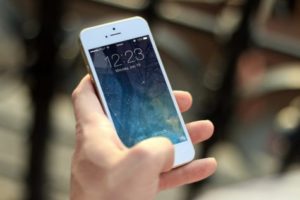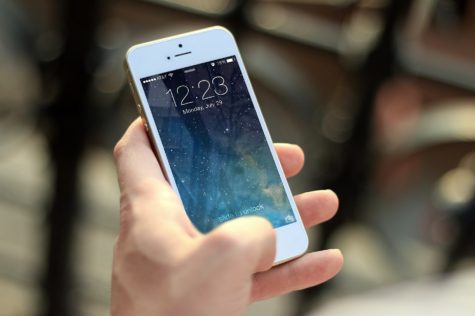BINGHAMTON, N.Y. — The prevalence of smartphone addiction ruining relationships has grown so prominent in recent years that the term “phubbing” — a combination of “phone” and “subbing” — has gone mainstream. Other studies have tied too much time on a smartphone to anxiety and depression. These studies only seem to scratch the surface of the problem.
Now, new research shows that being wedded to your phone can also cause more mental health deficiencies, along with problems at work, shorter attention spans, and additional social issues.

Researchers at The State University of New York at Binghamton also found that females especially are at risk of falling under the enchantment of a smartphone’s spell.
“Our smartphones have turned into a tool that provides short, quick, immediate satisfaction, which is very triggering,” says Isaac Vaghefi, assistant professor of management information systems, in a university news release. “Our neurons get fired and dopamine is being released, and over time this makes us acquire a desire for quick feedback and immediate satisfaction. This process also has contributed to developing shorter attention spans and being more and more prone to boredom.”
The research team recruited 182 college students to report in detail the daily use of their smartphones. Students were then placed into one of five categories depending on their level of usage: Addict, Fanatic, Highly Engaged, Regular, or Thoughtful.
Nearly 20 percent of the students (12 percent of which were identified as “fanatics” and 7 percent who were found to be “addicts”) reported problems in their personal lives, social lives, and workplace “due to a compulsive need to be on their smartphones,” according to the release. The survey showed that females especially were prone to addiction.
Those classified as “addicts” or “fanatics” were found to show symptoms of possible depression, social isolation, social anxiety, shyness, impulsivity, and low self-esteem.
Vaghefi believes the survey is just the beginning of smartphone addiction problems for Americans. As devices become “smarter,” more people will become addicted.
“While self-identified ‘addict’ users were in the minority, I predict technology addiction will increase as technology continues to advance and application, game and gadget developers find new ways to ensure users’ long-term engagement with technology,” he says.
In hopes of preventing the statistics from growing, he suggests people who turn to their smartphones as a means of “escape” from personal problems or feelings of “helplessness, guilt, anxiety or depression” seek help. Similarly, those who find they’re paying less attention to what’s happening in reality because they’re consumed with their devices should contact a mental health professional.
He also suggests professional help for people who constantly check their devices — especially when they haven’t rung, beeped or vibrated — or anyone who feels they can’t function properly if they happened to leave their smartphone home.
The paper, “A typology of user liability to IT addiction,” was published in Information Systems Journal.




Comments